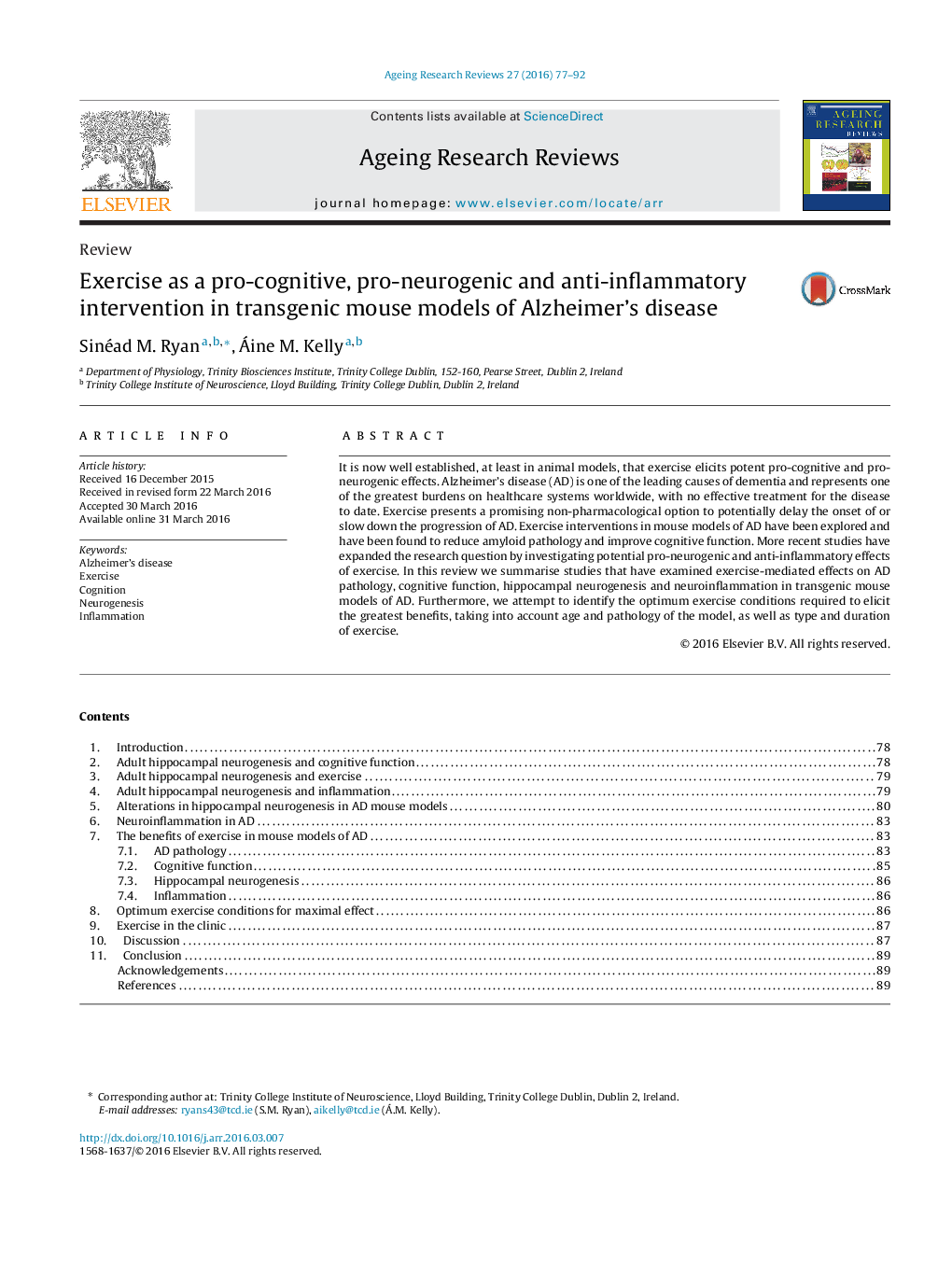| Article ID | Journal | Published Year | Pages | File Type |
|---|---|---|---|---|
| 1902157 | Ageing Research Reviews | 2016 | 16 Pages |
•Exercise elicits potent pro-cognitive and pro-neurogenic effects.•In AD mouse models, exercise reduces amyloid pathology and improves cognition.•Exercise-induced effects on neurogenesis and inflammation in AD are less explored.•Exercise can potentially slow down progression of AD.
It is now well established, at least in animal models, that exercise elicits potent pro-cognitive and pro-neurogenic effects. Alzheimer’s disease (AD) is one of the leading causes of dementia and represents one of the greatest burdens on healthcare systems worldwide, with no effective treatment for the disease to date. Exercise presents a promising non-pharmacological option to potentially delay the onset of or slow down the progression of AD. Exercise interventions in mouse models of AD have been explored and have been found to reduce amyloid pathology and improve cognitive function. More recent studies have expanded the research question by investigating potential pro-neurogenic and anti-inflammatory effects of exercise. In this review we summarise studies that have examined exercise-mediated effects on AD pathology, cognitive function, hippocampal neurogenesis and neuroinflammation in transgenic mouse models of AD. Furthermore, we attempt to identify the optimum exercise conditions required to elicit the greatest benefits, taking into account age and pathology of the model, as well as type and duration of exercise.
